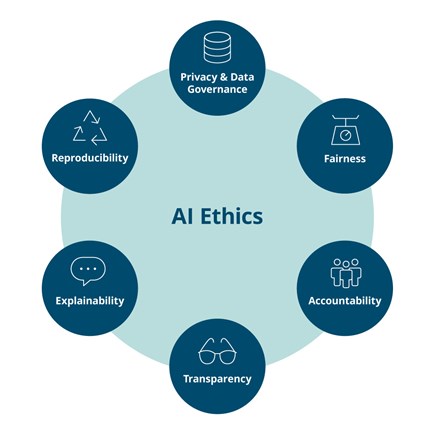Can AI Ethics Solve the Cognitive Debt Crisis?
As we lean on AI to boost productivity, a hidden cost emerges: cognitive debt—the gradual weakening of our ability to think, focus, and remember.
Mark Saymen
7/21/20252 min read


Can AI Ethics Help Solve the Cognitive Debt Crisis?
Yes—and it may be the key to preserving human focus, creativity, and long-term learning.
As AI tools become more powerful and embedded in our daily lives—from writing assistants to decision-making engines—a hidden cost is accumulating:
⚠️ Cognitive Debt — the erosion of our brain’s ability to think deeply, recall information, and sustain attention.
📉 MIT’s 2025 EEG study revealed that when users rely heavily on AI (like ChatGPT), their neural engagement weakens, memory retention drops, and ownership of ideas diminishes.
At the same time, attention spans continue to collapse—now averaging under 50 seconds per task (Gloria Mark, UC Irvine).
So what role does AI ethics play in reversing this trend?
Ethical AI Is Human-Centric AI
To solve cognitive debt, we must rethink how we design, deploy, and evaluate AI through a new ethical lens:
1. Transparency over Automation: Ethical AI makes it clear when and how it’s influencing thought. This nudges users to stay aware and maintain cognitive ownership—rather than unconsciously delegating their thinking.
2. Cognitive Load Balancing: Ethical systems are designed with limits. They support human thinking, not replace it. Like a GPS that offers direction without shutting off our ability to navigate.
3. Designed for Reflection, Not Addiction: From social media to productivity tools, AI ethics must prioritize mental depth over dopamine loops. This means slowing down the user when needed—not speeding them up to burnout.
4. Explainability Builds Memory:When AI offers explainable insights (the “why,” not just the “what”), users learn with the tool, instead of passively consuming answers. This promotes reasoning and recall.
5. Human-in-the-Loop as a Learning Feature:Ethical frameworks keep the human in control—not just to mitigate risk, but to enhance learning. When users are invited to reflect, edit, or question AI-generated content, they build stronger neural engagement.
Bottom Line:
AI ethics isn’t just about preventing bias or hallucinations.
It’s about designing technology that amplifies human cognition, instead of numbing it.
💡 In a world of cognitive overload, ethical AI must do more than “think for us.” It must help us think better.
Because the future doesn’t belong to those who prompt the fastest.
It belongs to those who retain the ability to focus, reflect, and reason.
🔁 Let’s build AI that respects our attention—and deepens our minds.
